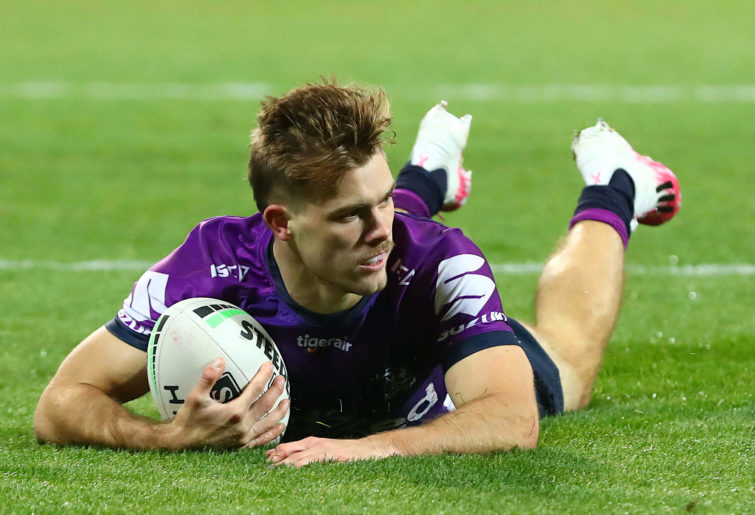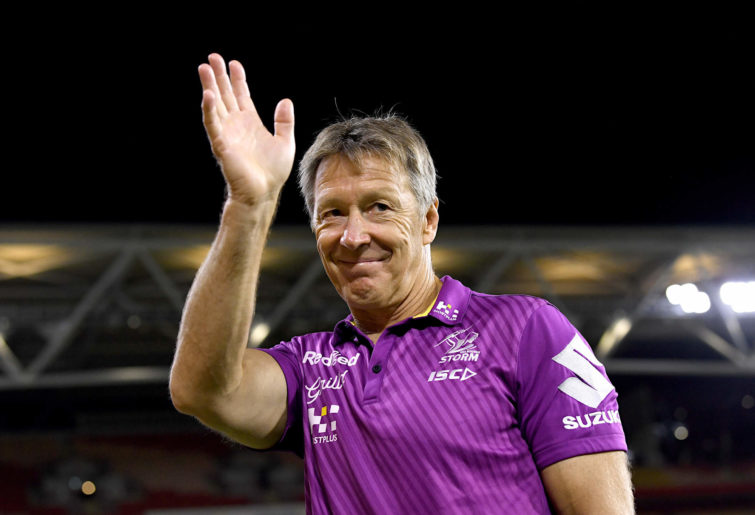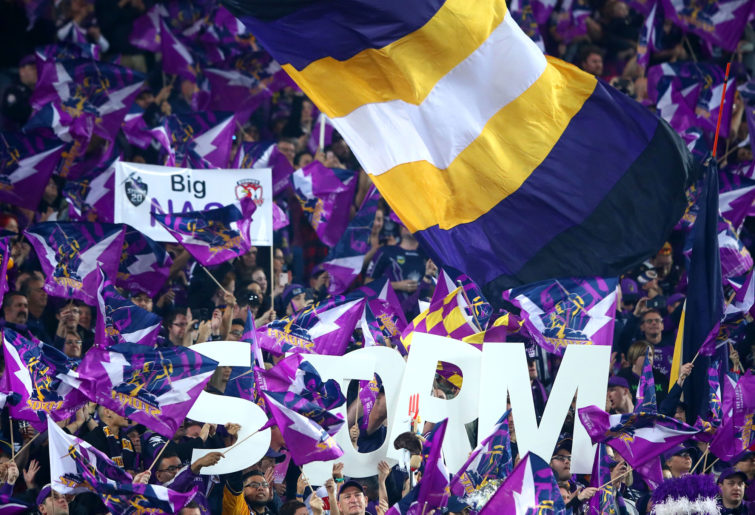We’ve all heard the term ‘moneyball’ bandied about in rugby league coverage.
Most recently it’s been used to describe St George Illawarra’s approach to recruitment. As many Roar readers have rightly pointed out, this is nonsense.
The Dragons have certainly been attempting to acquire value and depth at below-market rates through taking advantage of strained budgets elsewhere.
It’s an approach every baseball team has used. But it’s not moneyball.
That’s because Moneyball is a book published by Michael Lewis in 2004. It’s not about any single method of statistical analysis, player evaluation or recruitment.
The book charts baseball’s path from a game governed by traditional counting stats and the instincts and biases of its old guard to the beginning of the sabermetric revolution, with a particular focus on the Oakland Athletics of the 1990s and early 2000s.
Baseball’s old guard were the professional players who’d become scouts, coaches and administrators. They were a closed society resistant to outside influence and the challenge to their authority it entailed.
The old guard still dominates baseball’s coaching ranks. But player evaluation, recruitment and the governance of clubs are dominated by baseball fans, many of whom happen to have graduated from America’s Ivy League universities.
There are very few Phil Goulds left in baseball.
This piece isn’t about statistics. Rugby league can’t isolate different aspects of performance and measure a player’s contribution and value in the same way as a situational game like baseball.
League does lend itself to measures of probability – for example, the likelihood of teams scoring tries or goals from different positions on the field or players impacting a game over time.

(Photo by Robert Cianflone/Getty Images)
Nor is this article about recruitment. The so-called moneyball method of Oakland – identifying amateur or unemployed players with potentially useful skill sets who were both undervalued by other clubs and affordable for Oakland – has been done to death.
Baseball teams have moved on to increasingly elaborate forms of roster construction and deployment, not to mention exploiting and in some cases disregarding the rules of the game.
Rugby league doesn’t have baseball’s national amateur draft or complex system of employment regulation and salary arbitration. Oakland’s method was never relevant.
Where Moneyball is relevant to rugby league is in terms of governance and good decision-making.
Rugby league’s old guard still largely runs the show. There are chief executives from business backgrounds, but it seems the middle managers and coaches – the old guard, mostly – disproportionately influence many of the big decisions. It’s not clear what sort of scrutiny is applied at higher levels. At many clubs there seems to be little.
We still hear terms like ‘common sense’ bandied around as if they mean something. Whenever there’s a seemingly intractable problem, we apparently need more ‘football IQ’, whatever that means.

(Photo by Bradley Kanaris/Getty Images)
Moneyball is mostly the story of Billy Beane, an unsuccessful professional baseballer who retired early and pursued a career in scouting and administration, and how he seized control of Oakland Athletics and usurped the club’s stagnant old guard.
Beane was no revolutionary. He was a disciple.
In the 1980s the statistical analyst and writer Bill James gained a cult following through his coruscating criticism of baseball’s antiquated statistics and the flawed tactics they engendered.
As Lewis noted, “his preference [was] for leaving an honest mess for others to clean up rather than a tidy lie for them to admire”.
The new guard, including investment bankers, mathematicians, economists and many others, gleefully cleaned up the mess. Beane and his predecessor as Oakland general manager, Sandy Alderson, were among them. They began to completely reshape the team’s priorities.
They had to of course. Oakland had very little money to work with and had to withstand their best players being poached by wealthier rivals.
While Oakland didn’t win any major titles during the period in which Moneyball is based, they outperformed most other teams in baseball, most of whom had much more money to work with.

(Photo by Cameron Spencer/Getty Images)
In doing so Beane and his successors changed the sport. Members of baseball’s old guard were confined to operational roles subordinate to the evidence-based approach of statisticians and MBAs.
Many of them still resent this. It was top-down, controlling and an afront to tradition.
There hasn’t been a revolution like it in rugby league. There has been a benchmark club for much of the past 15 years: the Melbourne Storm.
Melbourne are seemingly the ideal balance between a dispassionate executive, middle management by people with some detachment from rugby league, and excellent coaching.
We’re not far away from finding out which of these was most important.
The long-time chief executive has departed, and the wildly successful head coach is not going to be in his current role much longer.
Are they a well-rounded organisation or a one-man band? An honest mess or a tidy lie?
I’ll leave you with Billy Beane’s five principles for recruitment, as written in Moneyball, lightly amended for rugby league.
- No matter how successful you are, change is always good. There can never be a status quo. You have to always be upgrading. Otherwise you’re f***ed.
- The day you say you have to do something, you’re screwed, because you’re going to make a bad deal. You can always recover from the player you didn’t sign. You may never recover from the player you signed at the wrong price.
- Know exactly what every player is worth to you. Put a dollar figure on it.
- Know exactly what you want and go after it.
- Every deal you do will be publicly scrutinised. Everyone thinks they know football. Tou have to ignore the newspapers.































































































